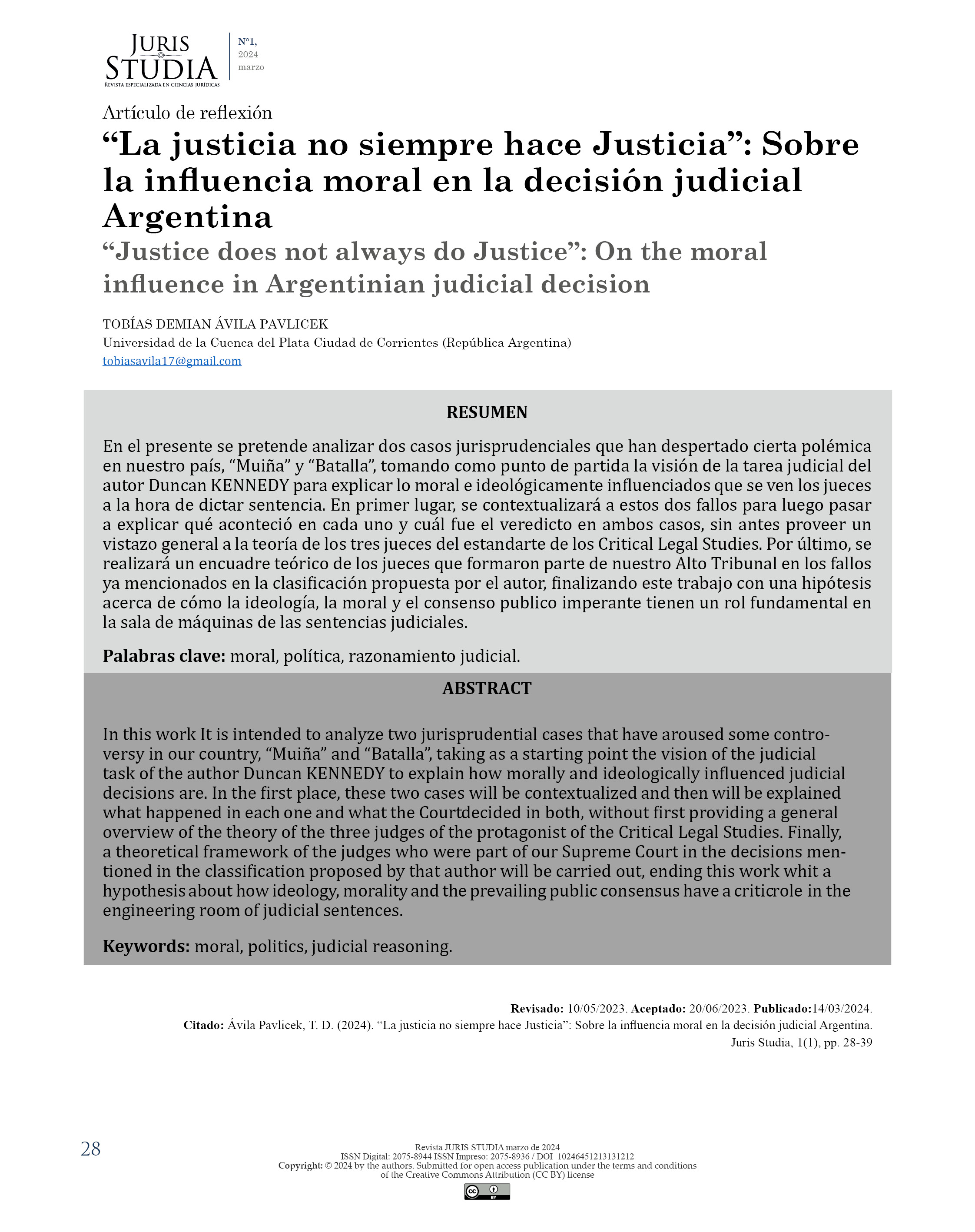"Justice Doesn't Always Make Justice": On the Moral Influence on Argentina's Judicial Decision
DOI:
https://doi.org/10.52428/12345678.v1i1.1085Keywords:
justicia, decisión judicialAbstract
In this work It is intended to analyze two jurisprudential cases that have aroused some controversy in our country, “Muiña” and “Batalla”, taking as a starting point the vision of the judicial task of the author Duncan KENNEDY to explain how morally and ideologically influenced judicial decisions are. In the first place, these two cases will be contextualized and then will be explained what happened in each one and what the Court decided in both, without first providing a general overview of the theory of the three judges of the protagonist of the Critical Legal Studies. Finally, a theoretical framework of the judges who were part of our Supreme Court in the decisions mentioned in the classification proposed by that author will be carried out, ending this work whit a hypothesis about how ideology, morality and the prevailing public consensus have a critic role in the engineering room of judicial sentences.

Downloads
Published
How to Cite
Issue
Section
License
Copyright (c) 2024 TOBÍAS DEMIAN ÁVILA PAVLICEK

This work is licensed under a Creative Commons Attribution 4.0 International License.
Authors who publish with this journal agree to the following terms:
- Authors retain copyright and grant the journal right of first publication with the work simultaneously licensed under a Creative Commons Attribution License 4.0 that allows others to share the work with an acknowledgement of the work's authorship and initial publication in this journal.
- Authors are able to enter into separate, additional contractual arrangements for the non-exclusive distribution of the journal's published version of the work (e.g., post it to an institutional repository or publish it in a book), with an acknowledgement of its initial publication in this journal.
- Authors are permitted and encouraged to post their work online (e.g., in institutional repositories or on their website) prior to and during the submission process, as it can lead to productive exchanges, as well as earlier and greater citation of published work.










